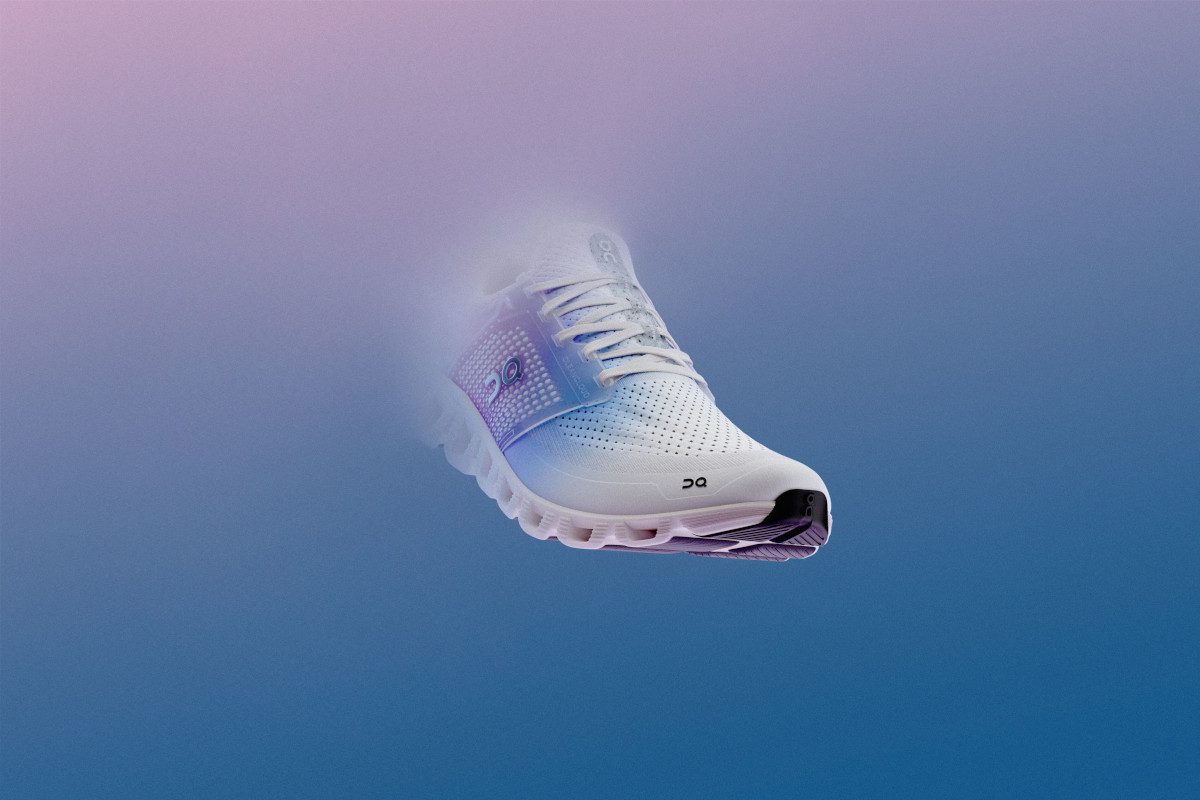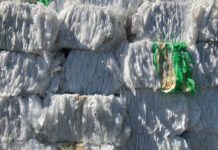
Seemingly a leap forward in sportswear firm On’s efforts to move away from petroleum-based resources, a new shoe range – marketed as Cloudprime™ – seems the first foray by a footwear company into using carbon emissions as the primary raw material for the midsole. The material is an EVA (ethylene vinyl acetate) foam – called CleanCloud™ – derived from carbon monoxide emissions from industrial facilities such as steel mills.
The CO is captured initially using technology from Italian biotech firm Lanzatech – a proprietary fermentation process that depends upon “selected and naturally occurring bacteria”, which converts the carbon-rich gas to ethanol. This, in turn, is dehydrated to create ethylene – a stage of the process handled by Technip Energies – and this ethylene is then polymerized – by circular plastics expert Borealis – to produce EVA (ethylene vinyl acetate), in the form of small plastic pellets, which then enter On’s production process for the creation of the CleanCloud foam material.
Lanzatech’s technology is described as “a combination of cutting-edge genetic engineering, state-of-the-art biotechnology, artificial intelligence, and innovations in mechanical and chemical engineering”. Core to the firm’s offering has been a gas fermentation process based on microbial processes associated with the earliest forms of life on Earth. High-profile deployments have included its use to convert carbon emissions into fabrics used in the fashion industry, and to convert MSW into useful fuels and chemicals.
“Today we continue our journey to show the world that recycled carbon is a resource rather than a liability,” says Jennifer Holmgren, CEO of LanzaTech. “As we increasingly convert pollution into the products we use in our daily lives, we will reduce the need to extract more carbon from the ground! The partnership between On, Borealis,Technip and LanzaTech will change how the world thinks about sourcing carbon, enabling us to bend the carbon curve, keep our skies blue, and create a sustainable future for all.”
Technip Energies is a leading engineering and technology company for the energy transition and in this consortium in charge of the process of dehydrating ethanol to the gas ethylene, which is a monomer and the most important building block of widely used plastics.
Bhaskar Patel, SVP Sustainable Fuels, Chemicals & Circularity at Technip Energies: “Technip Energies is proud to be supporting On in this exciting project to make CleanCloud™ a reality. The application of our Hummingbird™ technology to produce bio-ethylene is one step to a more sustainable future. We look forward to working with the On team to scale up and help bring CleanCloud™ to the world.”
Borealis is a leading provider of advanced, circular and renewable plastic solutions and essential in creating high-performance, easy-to-process EVA foam for CleanCloud™. This collaboration clearly underlines Borealis’ commitment to a net zero future and fully aligns with its EverMinds™ ambition of accelerating circularity through partnerships.
Lucrèce Foufopoulos, Borealis Executive Vice President Polyolefins, Circularity and Innovation & Technology: “Borealis is thrilled to be part of this unique value chain collaboration. With our creative partners On, LanzaTech, and Technip Energies we are proud to co-create circularity in carbon and decouple plastic from its reliance on fossil-based resources. Through innovation and collaboration, we continue re-inventing essentials for sustainable living.”
On’s says its ambition is to bring the CleanCloud™ technology to as many consumers as possible in the near future. “We believe that On can be an agent for positive change through enabling and accelerating the scale up of sustainable technologies such as CleanCloud™”, says Caspar Coppetti.
“Driven by the same spirit of sustainable innovation, On is collaborating with circular start-up Novoloop on the CleanCloud™ outsole, by utilizing the world’s first chemically upcycled TPU from post-consumer plastic waste. The outsole was put under rigorous lab and athlete testing, meeting specifications comparable to fossil derived TPUs with a significant carbon footprint reduction. For the upper, On is collaborating with the young French start-up Fairbrics to create a polyester-based textile made from carbon emissions.”







